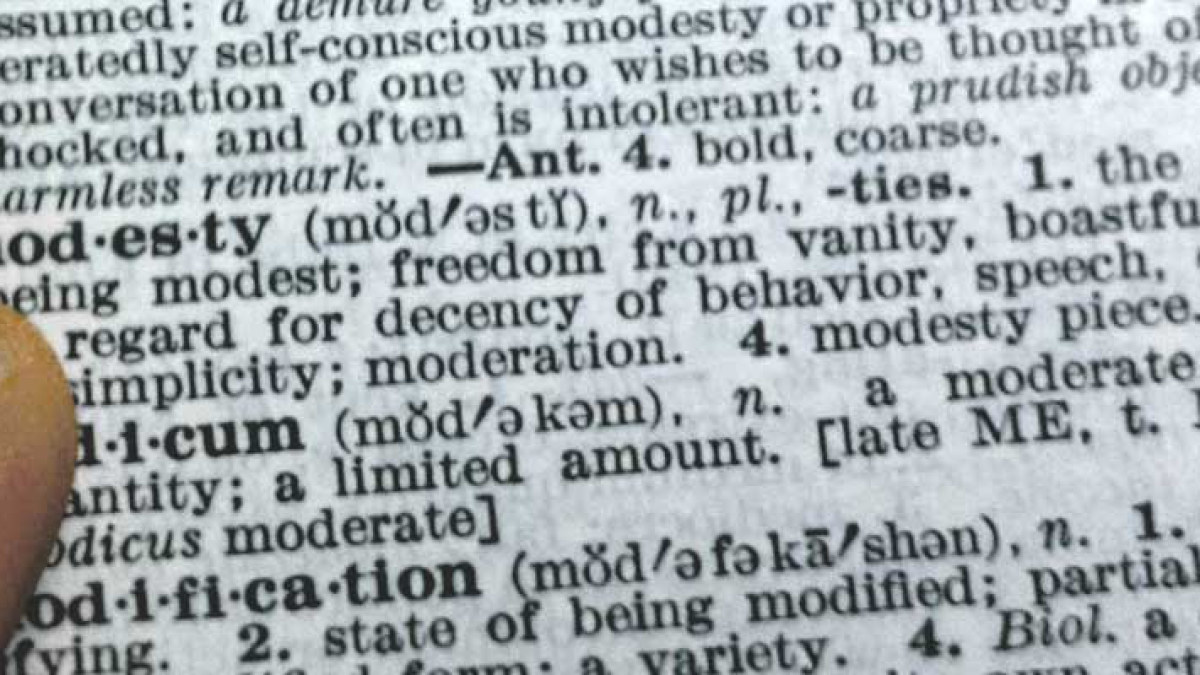a:18:{s:8:"theTitle";s:41:"4 Aspects of Civility for a Peaceful Life";s:12:"thePermalink";s:75:"https://www.islamicity.org/86136/4-aspects-of-civility-for-a-peaceful-life/";s:13:"theAuthorName";s:10:"Majd Arbil";s:12:"theThumbnail";s:72:"https://www.islamicity.org/wp-content/uploads/2023/08/kindness-isp-1.jpg";s:6:"isWhat";s:7:"article";s:7:"theIcon";s:0:"";s:8:"theEmbed";s:0:"";s:11:"theCategory";s:44:"cannot-retrieve-category-see-cell-part-1.php";s:6:"theTag";s:41:"ummah (community)|/topics/ummah-community";s:7:"theDate";s:11:"Apr 22 2024";s:11:"theDate_ORG";s:39:"August 6, 2023 {wpcf-soft-date engaged}";s:9:"theAuthor";s:25:"Majd Arbil|/by/majd-arbil";s:5:"theID";i:86136;s:14:"theReadingTime";s:6:"4 min.";s:10:"theExcerpt";s:117:"In a world where diverse cultures, beliefs, and opinions converge, the significance of civility cannot be overstated.";s:12:"theTitle_ORG";s:41:"4 Aspects of Civility for a Peaceful Life";s:25:"processRelatedFacetsTitle";s:0:"";s:15:"whereItCameFrom";s:56:"content.php & related posts > values=humility OR manners";}
a:18:{s:8:"theTitle";s:20:"Fall of the Pharaohs";s:12:"thePermalink";s:55:"https://www.islamicity.org/101290/fall-of-the-pharaohs/";s:13:"theAuthorName";s:17:"Abdal Hakim Murad";s:12:"theThumbnail";s:56:"https://img.youtube.com/vi/41B6QsfAJq0/maxresdefault.jpg";s:6:"isWhat";s:5:"video";s:7:"theIcon";s:33:"";s:8:"theEmbed";s:43:"https://www.youtube.com/watch?v=41B6QsfAJq0";s:11:"theCategory";s:44:"cannot-retrieve-category-see-cell-part-1.php";s:6:"theTag";s:19:"egypt|/topics/egypt";s:7:"theDate";s:11:"Apr 12 2024";s:11:"theDate_ORG";s:39:"April 12, 2024 {wpcf-soft-date engaged}";s:9:"theAuthor";s:39:"Abdal Hakim Murad|/by/abdal-hakim-murad";s:5:"theID";i:101290;s:14:"theReadingTime";s:0:"";s:10:"theExcerpt";s:158:"Eid heralds the repetition of the 'takbirat', the proclamation that 'Allah is Greatest' – greater than false gods and prideful pharaohs, ancient and modern.";s:12:"theTitle_ORG";s:20:"Fall of the Pharaohs";s:25:"processRelatedFacetsTitle";s:0:"";s:15:"whereItCameFrom";s:56:"content.php & related posts > values=humility OR manners";}
a:18:{s:8:"theTitle";s:36:"It is in the Heart, not in the Money";s:12:"thePermalink";s:68:"https://www.islamicity.org/6365/it-is-in-the-heart-not-in-the-money/";s:13:"theAuthorName";s:13:"Sadullah Khan";s:12:"theThumbnail";s:75:"http://media.islamicity.org/wp-content/uploads/2019/05/iStock-869226494.jpg";s:6:"isWhat";s:7:"article";s:7:"theIcon";s:0:"";s:8:"theEmbed";s:0:"";s:11:"theCategory";s:44:"cannot-retrieve-category-see-cell-part-1.php";s:6:"theTag";s:19:"money|/topics/money";s:7:"theDate";s:11:"Mar 29 2024";s:11:"theDate_ORG";s:41:"October 10, 2006 {wpcf-soft-date engaged}";s:9:"theAuthor";s:31:"Sadullah Khan|/by/sadullah-khan";s:5:"theID";i:6365;s:14:"theReadingTime";s:6:"8 min.";s:10:"theExcerpt";s:141:"The way people relate to wealth influences most aspects of their personal lives. For many people, where there is wealth there is attention ..";s:12:"theTitle_ORG";s:36:"It is in the Heart, not in the Money";s:25:"processRelatedFacetsTitle";s:0:"";s:15:"whereItCameFrom";s:56:"content.php & related posts > values=humility OR manners";}
a:18:{s:8:"theTitle";s:59:"Day 19 - Humility (Quran 25:63) - Ramadan Daily Reflections";s:12:"thePermalink";s:80:"https://www.islamicity.org/15682/day-19-humility-ramadan-2018-daily-reflections/";s:13:"theAuthorName";s:14:"Aslam Abdullah";s:12:"theThumbnail";s:48:"http://i2.ytimg.com/vi/iJT6e60EFFQ/hqdefault.jpg";s:6:"isWhat";s:5:"video";s:7:"theIcon";s:33:"";s:8:"theEmbed";s:43:"https://www.youtube.com/watch?v=iJT6e60EFFQ";s:11:"theCategory";s:44:"cannot-retrieve-category-see-cell-part-1.php";s:6:"theTag";s:23:"justice|/topics/justice";s:7:"theDate";s:11:"Mar 29 2024";s:11:"theDate_ORG";s:37:"June 3, 2018 {wpcf-soft-date engaged}";s:9:"theAuthor";s:33:"Aslam Abdullah|/by/aslam-abdullah";s:5:"theID";i:15682;s:14:"theReadingTime";s:6:"2 min.";s:10:"theExcerpt";s:134:"Day 19 - Humility (Quran 25:63)
For the month of Ramadan follow our daily video with inspirational words from our in house Imam Dr.";s:12:"theTitle_ORG";s:59:"Day 19 - Humility (Quran 25:63) - Ramadan Daily Reflections";s:25:"processRelatedFacetsTitle";s:0:"";s:15:"whereItCameFrom";s:56:"content.php & related posts > values=humility OR manners";}
a:18:{s:8:"theTitle";s:31:"Ramadan - In Pursuance of Taqwa";s:12:"thePermalink";s:62:"https://www.islamicity.org/6061/ramadan-in-pursuance-of-taqwa/";s:13:"theAuthorName";s:13:"Sadullah Khan";s:12:"theThumbnail";s:75:"http://media.islamicity.org/wp-content/uploads/2018/05/iStock-539830140.jpg";s:6:"isWhat";s:7:"article";s:7:"theIcon";s:0:"";s:8:"theEmbed";s:0:"";s:11:"theCategory";s:44:"cannot-retrieve-category-see-cell-part-1.php";s:6:"theTag";s:57:"taqwa (God consciousness)|/topics/taqwa-god-consciousness";s:7:"theDate";s:11:"Mar 26 2024";s:11:"theDate_ORG";s:39:"August 4, 2008 {wpcf-soft-date engaged}";s:9:"theAuthor";s:31:"Sadullah Khan|/by/sadullah-khan";s:5:"theID";i:6061;s:14:"theReadingTime";s:6:"5 min.";s:10:"theExcerpt";s:198:"The renowned philosopher, Aristotle, once said; "You are what you repeatedly do ". Habits are conditioned responses, formed through repetition, until the actions or reactions become second nature ";s:12:"theTitle_ORG";s:31:"Ramadan - In Pursuance of Taqwa";s:25:"processRelatedFacetsTitle";s:0:"";s:15:"whereItCameFrom";s:56:"content.php & related posts > values=humility OR manners";}
a:18:{s:8:"theTitle";s:22:"The Essence of Ramadan";s:12:"thePermalink";s:55:"https://www.islamicity.org/6069/the-essence-of-ramadan/";s:13:"theAuthorName";s:14:"Habib Siddiqui";s:12:"theThumbnail";s:76:"https://media.islamicity.org/wp-content/uploads/2018/05/iStock-539830140.jpg";s:6:"isWhat";s:7:"article";s:7:"theIcon";s:0:"";s:8:"theEmbed";s:0:"";s:11:"theCategory";s:44:"cannot-retrieve-category-see-cell-part-1.php";s:6:"theTag";s:37:"muttaqi (pious)|/topics/muttaqi-pious";s:7:"theDate";s:11:"Mar 20 2024";s:11:"theDate_ORG";s:40:"August 21, 2011 {wpcf-soft-date engaged}";s:9:"theAuthor";s:33:"Habib Siddiqui|/by/habib-siddiqui";s:5:"theID";i:6069;s:14:"theReadingTime";s:7:"11 min.";s:10:"theExcerpt";s:244:"You entreat Allahu ta'ala, but you do not obey Him. You know His Prophet (S), but you do not follow him. You read the Qur'an al-Karim, but you do not follow the way it prescribes. You utilize Allah ta'ala's blessings, but you do not thank Him. ";s:12:"theTitle_ORG";s:22:"The Essence of Ramadan";s:25:"processRelatedFacetsTitle";s:0:"";s:15:"whereItCameFrom";s:56:"content.php & related posts > values=humility OR manners";}
a:18:{s:8:"theTitle";s:48:"Fasting from Harmful Speech - Online and Offline";s:12:"thePermalink";s:81:"https://www.islamicity.org/104178/fasting-from-harmful-speech-online-and-offline/";s:13:"theAuthorName";s:10:"Majd Arbil";s:12:"theThumbnail";s:71:"https://media.islamicity.org/wp-content/uploads/2025/03/Words-Power.png";s:6:"isWhat";s:7:"article";s:7:"theIcon";s:0:"";s:8:"theEmbed";s:0:"";s:11:"theCategory";s:44:"cannot-retrieve-category-see-cell-part-1.php";s:6:"theTag";s:23:"ramadan|/topics/ramadan";s:7:"theDate";s:10:"Mar 2 2025";s:11:"theDate_ORG";s:13:"March 2, 2025";s:9:"theAuthor";s:25:"Majd Arbil|/by/majd-arbil";s:5:"theID";i:104178;s:14:"theReadingTime";s:6:"3 min.";s:10:"theExcerpt";s:83:"Words carry immense power—they can heal or harm, build or break, unite or divide.";s:12:"theTitle_ORG";s:48:"Fasting from Harmful Speech - Online and Offline";s:25:"processRelatedFacetsTitle";s:0:"";s:15:"whereItCameFrom";s:56:"content.php & related posts > values=humility OR manners";}
a:18:{s:8:"theTitle";s:36:"The Kindness of Prophet Muhammad (s)";s:12:"thePermalink";s:67:"https://www.islamicity.org/6428/the-kindness-of-prophet-muhammad-s/";s:13:"theAuthorName";s:10:"Ali Zohery";s:12:"theThumbnail";s:67:"http://media.islamicity.org/wp-content/uploads/2015/06/kindness.jpg";s:6:"isWhat";s:7:"article";s:7:"theIcon";s:0:"";s:8:"theEmbed";s:0:"";s:11:"theCategory";s:44:"cannot-retrieve-category-see-cell-part-1.php";s:6:"theTag";s:45:"prophet muhammad (S)|/topics/prophet-muhammad";s:7:"theDate";s:10:"Nov 8 2024";s:11:"theDate_ORG";s:41:"February 6, 2012 {wpcf-soft-date engaged}";s:9:"theAuthor";s:25:"Ali Zohery|/by/ali-zohery";s:5:"theID";i:6428;s:14:"theReadingTime";s:6:"9 min.";s:10:"theExcerpt";s:150:"The Prophet Muhammad taught love, kindness and compassion to his people, and was seen to be the most loving, kind, and compassionate of all of them ..";s:12:"theTitle_ORG";s:36:"The Kindness of Prophet Muhammad (s)";s:25:"processRelatedFacetsTitle";s:0:"";s:15:"whereItCameFrom";s:56:"content.php & related posts > values=humility OR manners";}
a:18:{s:8:"theTitle";s:53:"Is Kindness the Answer to a World Filled with Hatred?";s:12:"thePermalink";s:72:"https://www.islamicity.org/3332/kindness-the-insignia-of-a-loving-heart/";s:13:"theAuthorName";s:13:"Sadullah Khan";s:12:"theThumbnail";s:68:"https://media.islamicity.org/wp-content/uploads/2024/11/kindness.jpg";s:6:"isWhat";s:7:"article";s:7:"theIcon";s:0:"";s:8:"theEmbed";s:0:"";s:11:"theCategory";s:44:"cannot-retrieve-category-see-cell-part-1.php";s:6:"theTag";s:27:"mysticism|/topics/mysticism";s:7:"theDate";s:10:"Nov 7 2024";s:11:"theDate_ORG";s:40:"August 13, 2008 {wpcf-soft-date engaged}";s:9:"theAuthor";s:31:"Sadullah Khan|/by/sadullah-khan";s:5:"theID";i:3332;s:14:"theReadingTime";s:6:"5 min.";s:10:"theExcerpt";s:181:"O Lord, make me an instrument of Your peace, Where there is hatred, let me sow love, Where there is injury, pardon, Where there is doubt, faith, Where there is despair, hope ";s:12:"theTitle_ORG";s:53:"Is Kindness the Answer to a World Filled with Hatred?";s:25:"processRelatedFacetsTitle";s:0:"";s:15:"whereItCameFrom";s:56:"content.php & related posts > values=humility OR manners";}
a:18:{s:8:"theTitle";s:42:"In Celebration of the Reflection of Beauty";s:12:"thePermalink";s:76:"https://www.islamicity.org/64473/in-celebration-of-the-reflection-of-beauty/";s:13:"theAuthorName";s:13:"Sadullah Khan";s:12:"theThumbnail";s:76:"https://media.islamicity.org/wp-content/uploads/2020/10/iStock-901227770.jpg";s:6:"isWhat";s:7:"article";s:7:"theIcon";s:0:"";s:8:"theEmbed";s:0:"";s:11:"theCategory";s:44:"cannot-retrieve-category-see-cell-part-1.php";s:6:"theTag";s:25:"humanity|/topics/humanity";s:7:"theDate";s:11:"Sep 16 2024";s:11:"theDate_ORG";s:41:"October 17, 2020 {wpcf-soft-date engaged}";s:9:"theAuthor";s:31:"Sadullah Khan|/by/sadullah-khan";s:5:"theID";i:64473;s:14:"theReadingTime";s:6:"4 min.";s:10:"theExcerpt";s:186:"We are reminded in the Qur’an; “You have indeed in the Messenger of Allah an excellent example, for any one whose hope is in Allah and the Final Day, and who engages much in th......";s:12:"theTitle_ORG";s:42:"In Celebration of the Reflection of Beauty";s:25:"processRelatedFacetsTitle";s:0:"";s:15:"whereItCameFrom";s:56:"content.php & related posts > values=humility OR manners";}
a:18:{s:8:"theTitle";s:49:"Reviving the Ummah: Addressing 5 Major Challenges";s:12:"thePermalink";s:83:"https://www.islamicity.org/102622/reviving-the-ummah-addressing-5-major-challenges/";s:13:"theAuthorName";s:17:"Tareq Al-Suwaidan";s:12:"theThumbnail";s:56:"https://img.youtube.com/vi/c_ZPEdVpPG0/maxresdefault.jpg";s:6:"isWhat";s:5:"video";s:7:"theIcon";s:33:"";s:8:"theEmbed";s:43:"https://www.youtube.com/watch?v=c_ZPEdVpPG0";s:11:"theCategory";s:44:"cannot-retrieve-category-see-cell-part-1.php";s:6:"theTag";s:41:"ummah (community)|/topics/ummah-community";s:7:"theDate";s:10:"Sep 7 2024";s:11:"theDate_ORG";s:42:"September 6, 2024 {wpcf-soft-date engaged}";s:9:"theAuthor";s:39:"Tareq Al-Suwaidan|/by/tareq-al-suwaidan";s:5:"theID";i:102622;s:14:"theReadingTime";s:6:"1 min.";s:10:"theExcerpt";s:94:"In an analysis of the current state of the Muslim Ummah, several key problems were identified.";s:12:"theTitle_ORG";s:49:"Reviving the Ummah: Addressing 5 Major Challenges";s:25:"processRelatedFacetsTitle";s:0:"";s:15:"whereItCameFrom";s:56:"content.php & related posts > values=humility OR manners";}
a:18:{s:8:"theTitle";s:41:"4 Aspects of Civility for a Peaceful Life";s:12:"thePermalink";s:75:"https://www.islamicity.org/86136/4-aspects-of-civility-for-a-peaceful-life/";s:13:"theAuthorName";s:10:"Majd Arbil";s:12:"theThumbnail";s:72:"https://www.islamicity.org/wp-content/uploads/2023/08/kindness-isp-1.jpg";s:6:"isWhat";s:7:"article";s:7:"theIcon";s:0:"";s:8:"theEmbed";s:0:"";s:11:"theCategory";s:44:"cannot-retrieve-category-see-cell-part-1.php";s:6:"theTag";s:41:"ummah (community)|/topics/ummah-community";s:7:"theDate";s:11:"Apr 22 2024";s:11:"theDate_ORG";s:39:"August 6, 2023 {wpcf-soft-date engaged}";s:9:"theAuthor";s:25:"Majd Arbil|/by/majd-arbil";s:5:"theID";i:86136;s:14:"theReadingTime";s:6:"4 min.";s:10:"theExcerpt";s:117:"In a world where diverse cultures, beliefs, and opinions converge, the significance of civility cannot be overstated.";s:12:"theTitle_ORG";s:41:"4 Aspects of Civility for a Peaceful Life";s:25:"processRelatedFacetsTitle";s:0:"";s:15:"whereItCameFrom";s:56:"content.php & related posts > values=humility OR manners";}
a:18:{s:8:"theTitle";s:20:"Fall of the Pharaohs";s:12:"thePermalink";s:55:"https://www.islamicity.org/101290/fall-of-the-pharaohs/";s:13:"theAuthorName";s:17:"Abdal Hakim Murad";s:12:"theThumbnail";s:56:"https://img.youtube.com/vi/41B6QsfAJq0/maxresdefault.jpg";s:6:"isWhat";s:5:"video";s:7:"theIcon";s:33:"";s:8:"theEmbed";s:43:"https://www.youtube.com/watch?v=41B6QsfAJq0";s:11:"theCategory";s:44:"cannot-retrieve-category-see-cell-part-1.php";s:6:"theTag";s:19:"egypt|/topics/egypt";s:7:"theDate";s:11:"Apr 12 2024";s:11:"theDate_ORG";s:39:"April 12, 2024 {wpcf-soft-date engaged}";s:9:"theAuthor";s:39:"Abdal Hakim Murad|/by/abdal-hakim-murad";s:5:"theID";i:101290;s:14:"theReadingTime";s:0:"";s:10:"theExcerpt";s:158:"Eid heralds the repetition of the 'takbirat', the proclamation that 'Allah is Greatest' – greater than false gods and prideful pharaohs, ancient and modern.";s:12:"theTitle_ORG";s:20:"Fall of the Pharaohs";s:25:"processRelatedFacetsTitle";s:0:"";s:15:"whereItCameFrom";s:56:"content.php & related posts > values=humility OR manners";}
a:18:{s:8:"theTitle";s:36:"It is in the Heart, not in the Money";s:12:"thePermalink";s:68:"https://www.islamicity.org/6365/it-is-in-the-heart-not-in-the-money/";s:13:"theAuthorName";s:13:"Sadullah Khan";s:12:"theThumbnail";s:75:"http://media.islamicity.org/wp-content/uploads/2019/05/iStock-869226494.jpg";s:6:"isWhat";s:7:"article";s:7:"theIcon";s:0:"";s:8:"theEmbed";s:0:"";s:11:"theCategory";s:44:"cannot-retrieve-category-see-cell-part-1.php";s:6:"theTag";s:19:"money|/topics/money";s:7:"theDate";s:11:"Mar 29 2024";s:11:"theDate_ORG";s:41:"October 10, 2006 {wpcf-soft-date engaged}";s:9:"theAuthor";s:31:"Sadullah Khan|/by/sadullah-khan";s:5:"theID";i:6365;s:14:"theReadingTime";s:6:"8 min.";s:10:"theExcerpt";s:141:"The way people relate to wealth influences most aspects of their personal lives. For many people, where there is wealth there is attention ..";s:12:"theTitle_ORG";s:36:"It is in the Heart, not in the Money";s:25:"processRelatedFacetsTitle";s:0:"";s:15:"whereItCameFrom";s:56:"content.php & related posts > values=humility OR manners";}
a:18:{s:8:"theTitle";s:59:"Day 19 - Humility (Quran 25:63) - Ramadan Daily Reflections";s:12:"thePermalink";s:80:"https://www.islamicity.org/15682/day-19-humility-ramadan-2018-daily-reflections/";s:13:"theAuthorName";s:14:"Aslam Abdullah";s:12:"theThumbnail";s:48:"http://i2.ytimg.com/vi/iJT6e60EFFQ/hqdefault.jpg";s:6:"isWhat";s:5:"video";s:7:"theIcon";s:33:"";s:8:"theEmbed";s:43:"https://www.youtube.com/watch?v=iJT6e60EFFQ";s:11:"theCategory";s:44:"cannot-retrieve-category-see-cell-part-1.php";s:6:"theTag";s:23:"justice|/topics/justice";s:7:"theDate";s:11:"Mar 29 2024";s:11:"theDate_ORG";s:37:"June 3, 2018 {wpcf-soft-date engaged}";s:9:"theAuthor";s:33:"Aslam Abdullah|/by/aslam-abdullah";s:5:"theID";i:15682;s:14:"theReadingTime";s:6:"2 min.";s:10:"theExcerpt";s:134:"Day 19 - Humility (Quran 25:63)
For the month of Ramadan follow our daily video with inspirational words from our in house Imam Dr.";s:12:"theTitle_ORG";s:59:"Day 19 - Humility (Quran 25:63) - Ramadan Daily Reflections";s:25:"processRelatedFacetsTitle";s:0:"";s:15:"whereItCameFrom";s:56:"content.php & related posts > values=humility OR manners";}
a:18:{s:8:"theTitle";s:31:"Ramadan - In Pursuance of Taqwa";s:12:"thePermalink";s:62:"https://www.islamicity.org/6061/ramadan-in-pursuance-of-taqwa/";s:13:"theAuthorName";s:13:"Sadullah Khan";s:12:"theThumbnail";s:75:"http://media.islamicity.org/wp-content/uploads/2018/05/iStock-539830140.jpg";s:6:"isWhat";s:7:"article";s:7:"theIcon";s:0:"";s:8:"theEmbed";s:0:"";s:11:"theCategory";s:44:"cannot-retrieve-category-see-cell-part-1.php";s:6:"theTag";s:57:"taqwa (God consciousness)|/topics/taqwa-god-consciousness";s:7:"theDate";s:11:"Mar 26 2024";s:11:"theDate_ORG";s:39:"August 4, 2008 {wpcf-soft-date engaged}";s:9:"theAuthor";s:31:"Sadullah Khan|/by/sadullah-khan";s:5:"theID";i:6061;s:14:"theReadingTime";s:6:"5 min.";s:10:"theExcerpt";s:198:"The renowned philosopher, Aristotle, once said; "You are what you repeatedly do ". Habits are conditioned responses, formed through repetition, until the actions or reactions become second nature ";s:12:"theTitle_ORG";s:31:"Ramadan - In Pursuance of Taqwa";s:25:"processRelatedFacetsTitle";s:0:"";s:15:"whereItCameFrom";s:56:"content.php & related posts > values=humility OR manners";}
a:18:{s:8:"theTitle";s:22:"The Essence of Ramadan";s:12:"thePermalink";s:55:"https://www.islamicity.org/6069/the-essence-of-ramadan/";s:13:"theAuthorName";s:14:"Habib Siddiqui";s:12:"theThumbnail";s:76:"https://media.islamicity.org/wp-content/uploads/2018/05/iStock-539830140.jpg";s:6:"isWhat";s:7:"article";s:7:"theIcon";s:0:"";s:8:"theEmbed";s:0:"";s:11:"theCategory";s:44:"cannot-retrieve-category-see-cell-part-1.php";s:6:"theTag";s:37:"muttaqi (pious)|/topics/muttaqi-pious";s:7:"theDate";s:11:"Mar 20 2024";s:11:"theDate_ORG";s:40:"August 21, 2011 {wpcf-soft-date engaged}";s:9:"theAuthor";s:33:"Habib Siddiqui|/by/habib-siddiqui";s:5:"theID";i:6069;s:14:"theReadingTime";s:7:"11 min.";s:10:"theExcerpt";s:244:"You entreat Allahu ta'ala, but you do not obey Him. You know His Prophet (S), but you do not follow him. You read the Qur'an al-Karim, but you do not follow the way it prescribes. You utilize Allah ta'ala's blessings, but you do not thank Him. ";s:12:"theTitle_ORG";s:22:"The Essence of Ramadan";s:25:"processRelatedFacetsTitle";s:0:"";s:15:"whereItCameFrom";s:56:"content.php & related posts > values=humility OR manners";}
a:18:{s:8:"theTitle";s:48:"Fasting from Harmful Speech - Online and Offline";s:12:"thePermalink";s:81:"https://www.islamicity.org/104178/fasting-from-harmful-speech-online-and-offline/";s:13:"theAuthorName";s:10:"Majd Arbil";s:12:"theThumbnail";s:71:"https://media.islamicity.org/wp-content/uploads/2025/03/Words-Power.png";s:6:"isWhat";s:7:"article";s:7:"theIcon";s:0:"";s:8:"theEmbed";s:0:"";s:11:"theCategory";s:44:"cannot-retrieve-category-see-cell-part-1.php";s:6:"theTag";s:23:"ramadan|/topics/ramadan";s:7:"theDate";s:10:"Mar 2 2025";s:11:"theDate_ORG";s:13:"March 2, 2025";s:9:"theAuthor";s:25:"Majd Arbil|/by/majd-arbil";s:5:"theID";i:104178;s:14:"theReadingTime";s:6:"3 min.";s:10:"theExcerpt";s:83:"Words carry immense power—they can heal or harm, build or break, unite or divide.";s:12:"theTitle_ORG";s:48:"Fasting from Harmful Speech - Online and Offline";s:25:"processRelatedFacetsTitle";s:0:"";s:15:"whereItCameFrom";s:56:"content.php & related posts > values=humility OR manners";}
a:18:{s:8:"theTitle";s:36:"The Kindness of Prophet Muhammad (s)";s:12:"thePermalink";s:67:"https://www.islamicity.org/6428/the-kindness-of-prophet-muhammad-s/";s:13:"theAuthorName";s:10:"Ali Zohery";s:12:"theThumbnail";s:67:"http://media.islamicity.org/wp-content/uploads/2015/06/kindness.jpg";s:6:"isWhat";s:7:"article";s:7:"theIcon";s:0:"";s:8:"theEmbed";s:0:"";s:11:"theCategory";s:44:"cannot-retrieve-category-see-cell-part-1.php";s:6:"theTag";s:45:"prophet muhammad (S)|/topics/prophet-muhammad";s:7:"theDate";s:10:"Nov 8 2024";s:11:"theDate_ORG";s:41:"February 6, 2012 {wpcf-soft-date engaged}";s:9:"theAuthor";s:25:"Ali Zohery|/by/ali-zohery";s:5:"theID";i:6428;s:14:"theReadingTime";s:6:"9 min.";s:10:"theExcerpt";s:150:"The Prophet Muhammad taught love, kindness and compassion to his people, and was seen to be the most loving, kind, and compassionate of all of them ..";s:12:"theTitle_ORG";s:36:"The Kindness of Prophet Muhammad (s)";s:25:"processRelatedFacetsTitle";s:0:"";s:15:"whereItCameFrom";s:56:"content.php & related posts > values=humility OR manners";}
a:18:{s:8:"theTitle";s:53:"Is Kindness the Answer to a World Filled with Hatred?";s:12:"thePermalink";s:72:"https://www.islamicity.org/3332/kindness-the-insignia-of-a-loving-heart/";s:13:"theAuthorName";s:13:"Sadullah Khan";s:12:"theThumbnail";s:68:"https://media.islamicity.org/wp-content/uploads/2024/11/kindness.jpg";s:6:"isWhat";s:7:"article";s:7:"theIcon";s:0:"";s:8:"theEmbed";s:0:"";s:11:"theCategory";s:44:"cannot-retrieve-category-see-cell-part-1.php";s:6:"theTag";s:27:"mysticism|/topics/mysticism";s:7:"theDate";s:10:"Nov 7 2024";s:11:"theDate_ORG";s:40:"August 13, 2008 {wpcf-soft-date engaged}";s:9:"theAuthor";s:31:"Sadullah Khan|/by/sadullah-khan";s:5:"theID";i:3332;s:14:"theReadingTime";s:6:"5 min.";s:10:"theExcerpt";s:181:"O Lord, make me an instrument of Your peace, Where there is hatred, let me sow love, Where there is injury, pardon, Where there is doubt, faith, Where there is despair, hope ";s:12:"theTitle_ORG";s:53:"Is Kindness the Answer to a World Filled with Hatred?";s:25:"processRelatedFacetsTitle";s:0:"";s:15:"whereItCameFrom";s:56:"content.php & related posts > values=humility OR manners";}
a:18:{s:8:"theTitle";s:42:"In Celebration of the Reflection of Beauty";s:12:"thePermalink";s:76:"https://www.islamicity.org/64473/in-celebration-of-the-reflection-of-beauty/";s:13:"theAuthorName";s:13:"Sadullah Khan";s:12:"theThumbnail";s:76:"https://media.islamicity.org/wp-content/uploads/2020/10/iStock-901227770.jpg";s:6:"isWhat";s:7:"article";s:7:"theIcon";s:0:"";s:8:"theEmbed";s:0:"";s:11:"theCategory";s:44:"cannot-retrieve-category-see-cell-part-1.php";s:6:"theTag";s:25:"humanity|/topics/humanity";s:7:"theDate";s:11:"Sep 16 2024";s:11:"theDate_ORG";s:41:"October 17, 2020 {wpcf-soft-date engaged}";s:9:"theAuthor";s:31:"Sadullah Khan|/by/sadullah-khan";s:5:"theID";i:64473;s:14:"theReadingTime";s:6:"4 min.";s:10:"theExcerpt";s:186:"We are reminded in the Qur’an; “You have indeed in the Messenger of Allah an excellent example, for any one whose hope is in Allah and the Final Day, and who engages much in th......";s:12:"theTitle_ORG";s:42:"In Celebration of the Reflection of Beauty";s:25:"processRelatedFacetsTitle";s:0:"";s:15:"whereItCameFrom";s:56:"content.php & related posts > values=humility OR manners";}
a:18:{s:8:"theTitle";s:49:"Reviving the Ummah: Addressing 5 Major Challenges";s:12:"thePermalink";s:83:"https://www.islamicity.org/102622/reviving-the-ummah-addressing-5-major-challenges/";s:13:"theAuthorName";s:17:"Tareq Al-Suwaidan";s:12:"theThumbnail";s:56:"https://img.youtube.com/vi/c_ZPEdVpPG0/maxresdefault.jpg";s:6:"isWhat";s:5:"video";s:7:"theIcon";s:33:"";s:8:"theEmbed";s:43:"https://www.youtube.com/watch?v=c_ZPEdVpPG0";s:11:"theCategory";s:44:"cannot-retrieve-category-see-cell-part-1.php";s:6:"theTag";s:41:"ummah (community)|/topics/ummah-community";s:7:"theDate";s:10:"Sep 7 2024";s:11:"theDate_ORG";s:42:"September 6, 2024 {wpcf-soft-date engaged}";s:9:"theAuthor";s:39:"Tareq Al-Suwaidan|/by/tareq-al-suwaidan";s:5:"theID";i:102622;s:14:"theReadingTime";s:6:"1 min.";s:10:"theExcerpt";s:94:"In an analysis of the current state of the Muslim Ummah, several key problems were identified.";s:12:"theTitle_ORG";s:49:"Reviving the Ummah: Addressing 5 Major Challenges";s:25:"processRelatedFacetsTitle";s:0:"";s:15:"whereItCameFrom";s:56:"content.php & related posts > values=humility OR manners";}
a:18:{s:8:"theTitle";s:41:"4 Aspects of Civility for a Peaceful Life";s:12:"thePermalink";s:75:"https://www.islamicity.org/86136/4-aspects-of-civility-for-a-peaceful-life/";s:13:"theAuthorName";s:10:"Majd Arbil";s:12:"theThumbnail";s:72:"https://www.islamicity.org/wp-content/uploads/2023/08/kindness-isp-1.jpg";s:6:"isWhat";s:7:"article";s:7:"theIcon";s:0:"";s:8:"theEmbed";s:0:"";s:11:"theCategory";s:44:"cannot-retrieve-category-see-cell-part-1.php";s:6:"theTag";s:41:"ummah (community)|/topics/ummah-community";s:7:"theDate";s:11:"Apr 22 2024";s:11:"theDate_ORG";s:39:"August 6, 2023 {wpcf-soft-date engaged}";s:9:"theAuthor";s:25:"Majd Arbil|/by/majd-arbil";s:5:"theID";i:86136;s:14:"theReadingTime";s:6:"4 min.";s:10:"theExcerpt";s:117:"In a world where diverse cultures, beliefs, and opinions converge, the significance of civility cannot be overstated.";s:12:"theTitle_ORG";s:41:"4 Aspects of Civility for a Peaceful Life";s:25:"processRelatedFacetsTitle";s:0:"";s:15:"whereItCameFrom";s:56:"content.php & related posts > values=humility OR manners";}
 {file:content.php} {function:blp_getCustomField} {postID:3750} {customField:theClapCount} {default:0}not-in-use-in-plain-child
{file:content.php} {function:blp_getCustomField} {postID:3750} {customField:theClapCount} {default:0}not-in-use-in-plain-child

















